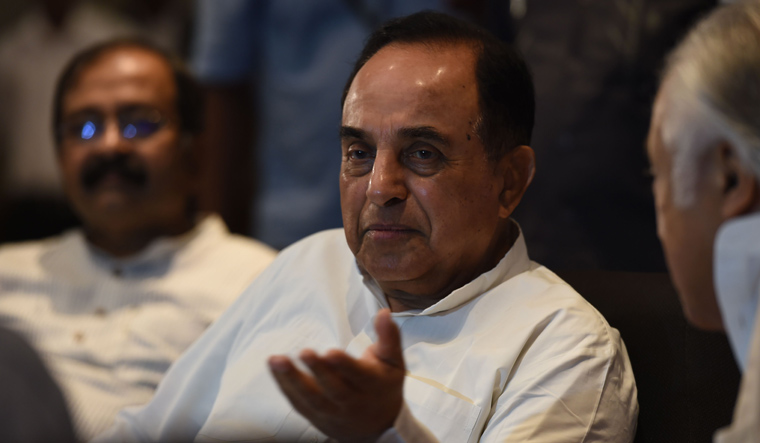After the Ayodhya verdict, Rajya Sabha MP and BJP leader Subramanian Swamy on Saturday demanded Bharat Ratna for Ashok Singhal, former VHP leader. "At this hour of victory let us remember Shri Ashok Singhal. Namo Govt must immediately announce Bharat Ratna for him... Without the human infrastructure of the RSS the Ram movement could not have been sustained for so long," tweeted Swamy post the Ayodhya verdict. Singhal was one of the accused in the FIR following the demolition of the Babri Masjid in 1992.
Singhal was named alongside Lal Krishna Advani, Murli Manohar Joshi, Vishnu Hari Dalmia, Uma Bharti, Giriraj Kishore, Vinay Katiyar and Sadhvi Ritambhara.
Swamy had been a strong advocate for the Ram Janmbhoomi-Babri Masjid title suit. Many leader, including former RSS ideologue K.N. Govindacharya, remembered Singhal's contributions after Saturday's verdict. Asked who he will give credit for the success of the movement to build the Ram temple at what is believed to be the birthplace of Lord Ram, he said, "Lakhs of workers made sacrifices. For the leadership of the movement, I will give highest credit to Ashok Singhal and L.K. Advani."
Singhal started out as an RSS activist during his days at Banaras Hindu University, now IIT (BHU). Singhal was the VHP's international president for a long time and was a prominent spearhead of the movement before the BJP joined it in support.
He became a full-time pracharak (proponent) of the RSS in 1942, the year when India was witnessing the Quit India Movement under the leadership of Mahatma Gandhi against the British Raj. As a Sangh volunteer he worked in various capacities across parts of UP and also became the praant pracharak (provincial proponent) for the Delhi unit of the Sangh.In 1981, he was moved to the position of national joint general secretary with the VHP, one of the most important affiliates of the RSS. He passed away in 2015.
In a unanimous verdict, the Supreme Court on Saturday paved the way for the construction of a Ram Temple at the disputed site at Ayodhya, and directed the Centre to allot an alternative five-acre plot to the Sunni Waqf Board for building a new mosque at a "prominent" place in the holy town in Uttar Pradesh.


